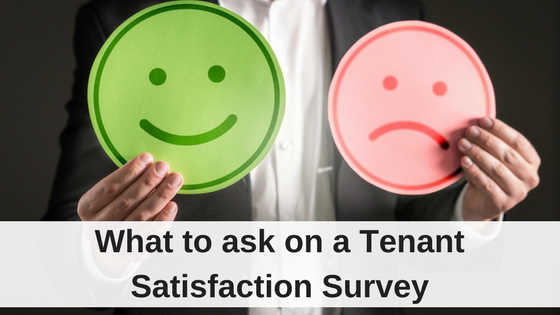
If you own rental properties or you are a real estate manager targeting the elderly, you need to be careful when it comes to furnishing or managing senior housing. For the elderly renters the requirements may be complex.
Research from the Harvard Joint Center for Housing Studies indicates that there has been a major increase in the number of renters in the US over the past decade. Among the renters, those in their 50s and 60s make up the largest portion of the increase. As more older adults downsize and move from their large family homes, they choose to be renters for the rest of their lives. However, there are some critical factors that they consider before deciding on the apartment to rent. Here are some special considerations that landlords need to keep in mind when renting out senior citizen apartments.
1. Federal Law on Discriminating Prospective Tenants
Landlords and tenants might not be aware, but certain laws do apply when renting to seniors. Federal law and anti-discrimination laws, in particular, warns against discriminating tenants based on age, disability, familial status, religion, ethnicity, and race. Therefore, once you let the tenant in, you will not be able to evict the tenant as a result of discrimination. Also, it is unlawful to deny a housing application to a tenant based on age or certain disabilities, or any other protected class. For this reason, be ready to accept elderly tenants irrespective of their age or physical abilities. You also need to remember to treat all your tenants equally, and not have special requirements or conditions for residents based on age or another protected class.
2. Consider Keeping the Apartment Pet-Friendly
Older adults love keeping pets in their apartment for companionship, as pets provide emotional comfort to the elderly and make them less lonely. Instead of not allowing pets in your apartments, you can agree on certain rules with the elderly tenants when it comes to their pets, or the type of pets you are willing allow. This includes keeping the pets clean and quiet to ensure they don’t disturb the other tenants. You may want to only allow cats, or cats and only small dogs to make sure the flooring in the apartment doesn’t get damaged. You may want to require carpets if the elderly tenant chooses to keep pets.
3. Ask Your Tenants to Provide Contacts for Family Members Living Nearby
Another important factor that landlords need to put into consideration is having an emergency contact. This is a number of the tenant’s close relatives and maybe friends living nearby. This is so that in case the elderly tenants are facing an emergency, you will be able to find a reliable person to assist them. Some elderly tenants might choose to live in different states from where their family members can be found. In such cases, make sure you have address details for their family members too. Alternatively, you can take the contacts of a personal doctor or the preferred hospital so that you can contact them in case of an emergency.
4. Make Sure You Boost Safety Measures
Rental properties for the elderly should meet property safety requirements. This helps to ensure the safety of the elderly tenants. This includes working stair lifts, accessibility ramps, handrails on staircases, security cameras and panic buttons, strong locks, and possibly safes. Safety is an important factor that elderly tenants consider before they rent an apartment. Therefore, these features will be enough to attract older tenants in your apartments. Make sure that floors aren’t slippery and that there are no loosely hanging fittings that might hurt the elderly tenants.
5. Help Elderly Tenants Through Rent Enforcement
Elderly tenants, especially those relying purely on SSI checks and a small pension, may be late on payments. When this happens, evicting them may be problematic, especially if you are in one of the pro-tenant states such as New York. Instead, you can help them to find new housing where the rent is much more affordable – this way they will move out quicker and you will be able to find someone who can stay current on their rent so that you can maximize your rental property earnings. When they request you for more time, hear them out and put it in writing. You might also help them to apply for aid from charitable organizations. However, be aware that most charitable organizations are reluctant when it comes to helping tenants who are 30 days behind on their rent.
Hire a reliable property manager who can help you in collecting the pending payments. Property managers are much more experienced with renting to the elderly tenants and are used to the challenges that come along with it.
6. Ensure the Apartment is Located at a Convenient Location
According to Senior Living Help, senior citizens normally choose to live in an apartment that is located in a convenient location where the seniors can find access to all necessities. Think about the places they like to go on a regular basis like the gym, grocery stores and convenience store as well as the places they may need in case of an emergency, such as medical facilities or a pharmacy. It is important that before you decide to purchase a rental property, you keep in mind ease of accessibility to these places and amenities.
7. Is the Environment Conducive for Senior Living?
It is important to ensure that seniors will like their neighborhood. Normally, older adults want a place where they can enjoy quiet nights, where they enjoy privacy away from noisy neighbors and where the landlord is good at fixing any problems with the building or apartment. Make sure that their apartments aren’t surrounded by noisy neighbors, that you are available to fix any issues they might be having and that the environment provides the needed privacy.
8. Don’t be Quick to Evict the Elderly Tenants
If you are renting apartments to elderly tenants, there is no doubt that at some point you might want to make a tough judgment of eviction. In some instances, you might want to evict the elderly tenants because you have no other choice. However, don’t be hasty with this decision. There might be more to the story than meets the eyes. Understand what your elderly tenant’s problem might be and treat it with compassion and an open mind. In case of late payments, they might be forgetful simply because of old age. In case it is damage to your property, request for replacement of the broken part out of their pocket.
If you are a landlord providing housing for the elderly tenants, always keep the 8 factors above in mind when renting your properties to senior citizens.







What rights do I have if my elderly tenant is no longer able to safely walk upstairs. My tenant is a long term tenant but has recently become limited in her ability to walk upstairs and I fear she may hurt herself. My building doesn’t have a lift.
It’s been almost 2 years and my landlord has yet to fix the screens repair the floor ceiling has hairline cracks and of all things my hot water heater went out two weeks ago I had been calling him letting him know about this my refrigerator keeps getting warm not cold at all he says that mostly all tenants have an appliance plan but it’s not my appliances so anyway my birthday was coming up and I was having relatives from out of town over he said he was going to send someone out to repair the hot water heater and check and see why my windows keep covering with set I have had a cough that the doctors cannot find out what’s going on they tried everything when the handyman came over he went out and check the furnace he said there’s no filter in here it was a very old dirty filters laying on the side of the Furnace but there was no filter in there when I first moved in here 2 months later a handyman came out and supposedly change the filter but I guess that didn’t happen so I’ve been living in the same unit for 2 years with no filter when I turn the air on this time I noticed how I kept coughing and coughing and coughing I just can’t believe it he told me that a filter replacement its my responsibility I told him that I am 66 years old and that should not be my responsibility nor trying to get this pilot lit he told me that anybody can light a pilot I have been trying my son came out to try it we cannot get it lit well the handyman said that the striker it’s not connecting it’s not working so definitely the landlord has to get a repairman out here after that he still haven’t got someone out here he just told me after me sending him several several text asking him how can I have company and they can’t take a shower this is ridiculous he told me his handyman is on vacation for the holiday and won’t be back till next week I think that’s awful I paid $1,000 a month for a piece of BS and I am so sick of this no I don’t have anywhere else to go right now I sure don’t but he is taking advantage of me so please somebody help me I can’t hardly breathe anymore I can hardly walk I come up the stairs I keep an Immaculate place I never call him unless unless it’s detrimental in like it is and has been before I pay that rent on August 3rd I told him that these things need to be taken care of here it is September 1st in a few hours and he still has not done anything
Hi Arletta, I would certainly recommend contacting your local housing authority to ask about your rights and the landlord’s responsibilities for your state/local area. They will be the ones who will be best equipped to provide you the most comprehensive information in regard to your situation. Best wishes, Heather
I live in a low income apt we have roaches they sent out an exterminator that made them worse we are in our seventies low income and when we mention staying painting new flooring or carpet they say we have to move all the furniture which of course we are unable to do and no money to hire anyone
That must be a difficult situation, Shirley. Sometimes people will see more bug activity after an exterminator because the insect is dazed and confused and trying to escape. If it doesn’t clear up, let your landlord know so they can decide if another exterminator visit is necessary.
In regards to moving furniture, I recommend calling senior centers, churches, or other non-profits to ask about volunteers in your area. You might also consider reaching out to neighbors in your apartment complex to lend a hand.
I am a senior citizen who’s lives on the UES of Manhattan in the same building for over 40 years. I can no longer afford to pay rent as I am social security only and the rest of my assets are gone. they have come to my apartment rang the bell vigorously. I did not answer..
I was frightened ..they slipped a notice under the door with the amount I was in arrears and to tell me they will be serving me papers in 10 days which will be very soon. is there any program that can allow me to stay in my apartment . I have been searching to no avail
Thank you for sharing, Kathie. I was able to find a few links that might direct you to some assistance. I do hope you are able to either find resources to pay or find more affordable housing soon. Sending you all my best in this difficult time.
New York Foundation for Senior Citizens – I suggest checking out the Support Services and Housing links at the top of the page.
New York State Housing and Support Services — this link might prove helpful if you are at risk of losing your housing.
Official website of the City of New York — this has links to all services, agencies, programs, and resources
Hi Kathie, you said you live on the upper east side. This may not apply to you, However; if your building is rent stabilized, you could apply for SCRIE (Senior Citizens Rent Increase Exempt). This program pays a portion of your rent. The portion the tenant pays will never increase. You can Google SCRIE for all information. Some landlords like to take advantage of elderly people. They want you to move so that they can do a major renovation and raise the rent to market rate. Before they can remove you, there has to be a court date. After that a pink notice is taped on the outside of your apartment door saying you have 30 days to vacate. Don’t be frightened. There are agencies that can help you. I am just a senior citizen also. I know what it is like.
I’m 73 living in my rental house for 2.5 years without any problems always paying my rent.
Kept everything clean in and outside planting flowers.
Last week she dropped off a letter asking me to leave by Nov 3. No reason was stated.
Is this legal
Hi Liz,
Unfortunately, landlord-tenant laws are very different from state-to-state and even within different municipalities. Generally, if you were on a month-to-month agreement, landlords can use a 30-Day, 60-Day, or 90-Day notice to vacate to end the tenancy when the tenant has not done anything wrong. (The length of notice will depend on your state or local statutes, this is often referred to as a “no-cause” notice.) If you are unsure about what is legal in your area, consider consulting an attorney who is familiar with local landlord-tenant laws, or reaching out to your local housing authority for further insight.